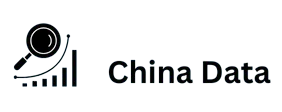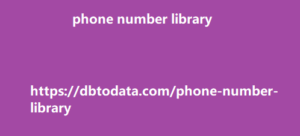What is technical SEO? This includes things like your site’s structure, code, and page speed. By improving these technical factors, you can make your site more visible and easier to find in search results. can have awesome content, but if your website has technical errors, that awesome content you worked hard on will be difficult to find. This is why technical SEO is important. For one, it can help improve your site’s visibility in search results. If your site is well-optimized, it will be easier for search engines to find and index it. This can lead to higher rankings and more traffic over time.
Additionally, technical SEO can help improve
your site’s user experience. Faster loading times and an easy-to-use interface can make a big difference for your visitors. Is technical SEO difficult? Technical SEO can seem daunting at first, but it’s actually not that difficult once you get the hang of it. The most important thing to remember is that technical SEO is all about making your website as easy to find and index as possible. That means ensuring that your pages are well-structured and free of errors, and providing clear and concise metadata. It also means taking steps to improve your site’s speed and performance. While this may sound like a lot of work, the payoff is worth it—technical SEO can help you attract more organic traffic and improve your search engine rankings.
Is it possible to rank a website properly without
technical SEO? In order for a website to rank on the search engines, technical SEO must be implemented. This means that: The website must be designed in such a way that it can be easily found and indexed by the search engine crawlers. The website must also have fast loading times and be free of errors. The website’s structure and hierarchy should be easy to understand. So without optimizing the technical factors in your website, it won’t rank in the search engines. Technical SEO vs on-page SEO One common misconception is that technical SEO and on-page SEO are the same thing.
But there is a big difference between
the two. On-page SEO refers to the optimization of individual pages on your website. This includes things like title tags, meta descriptions, and keyword research. Technical SEO, on the other hand, refers to the technical aspects of your site that affect its crawlability and indexation. This includes things like site structure, code, and page speed. So if you’re looking to improve your website’s visibility in search results, be sure to focus on both technical and on-page SEO, and not just one or the other. Glossary of terms Before we move forward, here are some terms for quick reference.
Crawling Search engines detect new and updated
content by sending search spiders, which canada phone number library crawl and store information from websites for indexing and retrieval. Indexing Search engines index content they find during crawling and store it. As soon as a page is indexed, it is eligible to appear when relevant to a user’s search query. Retrieval Search engines search their index database for results relevant to the search query, then retrieve those results and rank them according to what looks to be the most useful to the user. XML sitemap An XML sitemap is used to help search engines understand the structure of a website. It’s basically a map that shows search engines what pages are on a site and how they’re related.
This can be especially helpful if a website has
a lot of content or if it’s regularly updated. Robots.txt The robots.txt is a file used to control which files search engine spiders can access on your website. The file is located in the root directory of your website. Structured data Structured data is a specific format for organizing information on a website. This format can be used by search engines to understand the contents of a page, and provide more relevant results to users. Structured data also makes the SERPs more informative by triggering knowledge panels, featured snippets, and event snippets. Technical SEO audit tools Here is a list of the tools you can use for your audit.
Screaming Frog SEO Spider Technical SEO tool
Screaming frog interface We can do more focused workhow covered Screaming Frog extensively in our Learn SEO guide. Basically, it crawls your links and gives you an overview of what’s going on in your website: Your 404s, duplicates, missing metadata, and more. Learn SEO The Complete Guide for Beginners Landing Page Download: Learn SEO: The Complete Guide for Beginners SE Ranking New SE Ranking Website Audit Tool Dashboard 3 A paid tool I’ve found to be useful as well for auditing is SE Ranking. The best part for me about this tool is that the report interface is so clean and intuitive. You can check out our review for SE Ranking’s website audit feature here.
Semrush Technical SEO tool Semrush site
audit Semrush has a site audit functionality bulk data as well which you can use to check orphan pages, core web vitals, and more. Further reading: Semrush Core Web Vitals Report Review Google Search Console Google Search Console Coverage Interface Google Search Console is an indispensable tool for technical SEO. This is where you check and verify URLs, submit your sitemap, and more. PageSpeed Insights Technical SEO tool PageSpeed Insights Analysis It’s important that you know how fast your website is and what’s causing it to slow down. PageSpeed Insights is the tool you need for that. Think with Google page speed No matter how good traffic and engagement will remain low.

